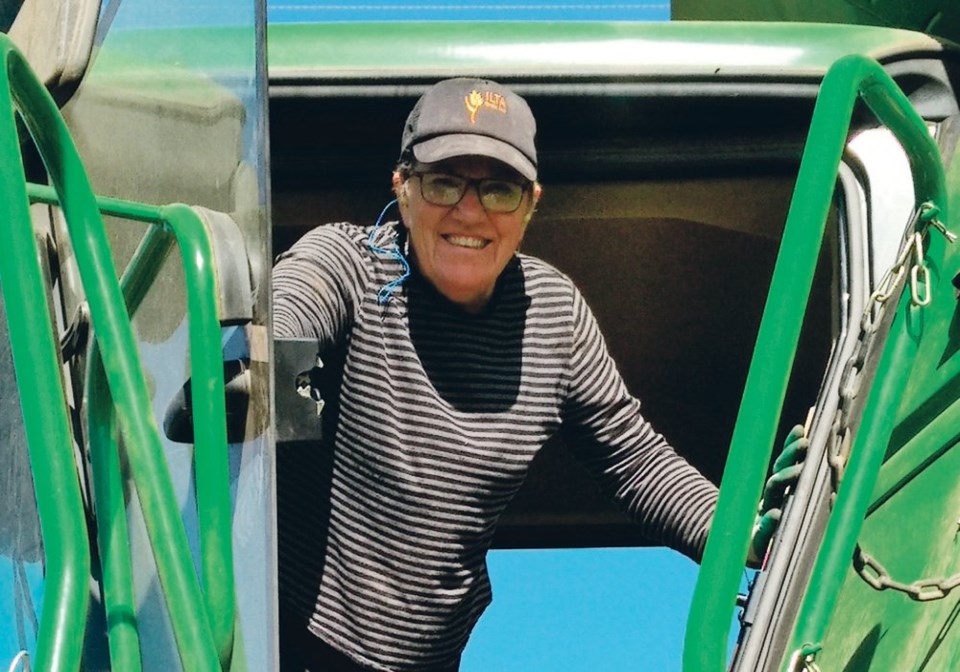WESTERN PRODUCER — Finally, I have found my niche in life: combining. I love everything about it, I am reasonably good at it; and it takes place in my favourite season — fall.
Combining is the realization of all the hard work that has gone into the year’s cropping, but the most intriguing part of this practice is the common language the farming community speaks when this season gets underway.
The art of combining has its own unique vocabulary that allows those involved to share in a common experience unlike any other. As soon as farmers start thinking about harvest, they begin speaking in “combine tongues.”
The first words to show up in any conversation are “ready” and “tough,” the connotations of which are understandable in other disciplines, but in harvesting have a rich and complex history. No specific day signals the start of harvest: the criteria varies every year depending on moisture, germination and available nutrients. This elusive day is a sure-fire icebreaker in any exchange of pleasantries on the roadside or in the marketplace.
The word “tough” doesn’t refer to hardiness but to a complicated mix of percentages of moisture, thrash factor and the curative nature of a specific crop. A long history of noting these differences has given farmers a nuanced quality to their discussions of whether or not the grain is ready to combine.
“Rubbing out a few heads” is not a gangsta term. Rather, it is a quick method of rubbing a few heads together in the field to determine colour, apparent weight and quality of the seed (does it crack when you bite it?) in an effort to determine whether the crop is ready to combine. Bystanders to these time-honoured practices may feel as if they have missed the memo on when to “go in.” As soon as one farmer makes a test strip in a field, there are sure to be others who follow suit.
Once the field has been “opened,” other terms are fired around in rapid succession: “passes” and “rounds” are measures of limitation. The combine hoppers and grain trucks hold a finite amount of grain. Can an operator get “up and back” with one “tank?” The operator might have to “dump on the go” (a technique I have yet to master).
Cutting a “headland” makes it easier to turn at the end of a pass and is a way of adding efficiency to the operation. How important is it to catch uncut “tails” and “misses” if time has become a factor? When the operator is asked “how is it running?” the answer is usually given as a number: “about 30,” “over 40,” or “a good 60” (bushels per acre). Farmers only have to say the number and a bond is forged. The larger the number, the bigger the smile.
The combine itself carries with it a rich vocabulary, as one would expect with such a remarkable machine. Reference to the “header” does not mean the title at the top of the page, “the canvas” does not refer to tent material, the “table” is not to be set with plates and cutlery, and the “reel” is not an old-time dance.
“Engaging the separator” is not just turning the machine on. “Plugging the feeder house” may lead to an hour of “down time” when the ultimate goal is “getting the crop off.” “Straw walkers” and “shoes” are not characters in a zombie flick. And when farmers say they are “all done,” it doesn’t mean they have given up; it means they have completed the harvest for the year, and the expression is usually accompanied with a big sigh of relief.
Combining (the skill of cutting, binding, stooking and retrieving sheaves, and thrashing in a stationary location) has a vocabulary all its own. Being a part of a combining circle allows one to converse with others in the same circle in a community, or in a country. The vocabulary allows participants to understand an age-old practice that is part science, part art.
If one is lucky enough to share in this annual tradition, one is not only given membership in this elite club but can count oneself as truly blessed.





